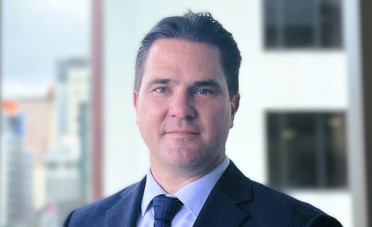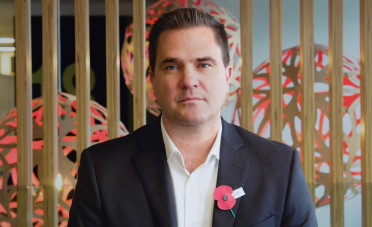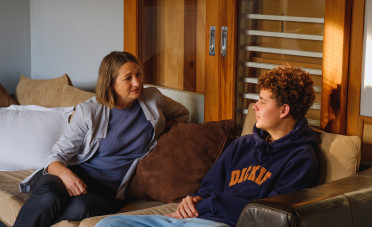Military-Style Academies
The Government has committed to addressing child and youth offending, with a target of reducing serious, repeat offending by 15%.
Introduction
The Government has announced a range of initiatives to address serious, persistent youth offending. These include plans to introduce a new Young Serious Offender (YSO) declaration and Military-Style Academies (MSA).
There is a small group who commit a significant proportion of the total offences by young people. For those who continue to offend, despite the efforts of those around them, current responses are not sufficient. The new initiatives aim to address criminal activity, while also supporting offenders in their rehabilitation.
About the Young Serious Offender Declaration
Legislation to create a YSO declaration will be introduced later in 2024. A young person will be eligible to be declared a Young Serious Offender if:
-
they are 14 to 17 years old at the time of offending
-
have had two offences punishable by imprisonment of 10 years or more proven in court
-
are assessed as being likely to reoffend, with previous interventions having proven unsuccessful.
Teenagers declared to be Young Serious Offenders will face a stronger and escalated response, with more options for the Youth Court and Police. That includes being able to sentence young offenders to a Military-Style Academy Order (they need be 15 to 17 years old at the time of offending to be eligible for this).
A Youth Court judge will have the final say on making a YSO declaration.
About the Military-Style Academies
Alongside the development of the new legislation, a Military-Style Academy Pilot is in progress (sometimes called the MSA Pilot, or the Academy).
Oranga Tamariki was directed to lead the establishment of the Academy. We worked closely with officials from New Zealand Defence Force, Ministry of Justice, New Zealand Police, other agencies and community groups to develop it.
The MSA pilot will be evaluated throughout, with a report published at the end. The evaluation will be used to inform operational elements of Military-style Academies in future, when the legislation is in place. At that point, there may be changes to the design of how any future Academies will run. For example, if needed, it will allow for a longer residence stage and more flexibility around the types of programme components and locations.
Designing the Military-Style Academy Pilot
The goal of the Military-Style Academy Pilot is to make a difference in the lives of the teenagers involved, by enabling them to positively contribute and thrive within their whānau and community, without offending.
The MSA programme team, led by Oranga Tamariki, looked at evidence from previous military-style programmes, in New Zealand and internationally, to understand what will give the teenagers taking part the best chance of success. The team has embedded these elements in the Academy design, including a deliberate focus on the teenagers’ transition back to the community, making sure they have support and are well set up for the future. These are key differences that set the Academy apart from previous iterations.
Tusha Penny, DCE Residences & Homes at Oranga Tamariki, explains:
“The design of the Military-Style Academy Pilot has taken shape over the last few months. I’m excited that we can now share more details, ahead of the launch of the residence stage at the end of July.
Using an evidenced based approach, we believe Military-Style Academies could be game changing for those youth that need more intensive support to turn their lives around.
The pilot is different from anything we’ve tried before. We’ve thought outside the box and are being ambitious – throughout the design process we’ve asked what does ‘best’ look like? Where can we take inspiration from? Then we've tested that thinking with experts, who are independent to Oranga Tamariki.
This isn't about a punitive or correctional approach. We want there to be accountability for proven serious offending, but the key to success is that this is also an opportunity for the teenagers, and their whānau, to benefit from an intensive circuit breaker. That includes getting joined up, multi-disciplinary support that is tailored for them.
This doesn’t replace other work in our Youth Justice space. Instead, it’s a new tool in our toolkit, for when existing options haven’t worked.”
The Academy consists of a 12-month programme, with three parts:
-
The first is assessment of the young people who are potentially eligible to take part (a Youth Court Judge makes the decision during sentencing). The assessment includes a clinical perspective and conversations with their whānau, who will be involved throughout the programme. Ahead of sentencing, the MSA Pilot will have been explained to the teenagers, whānau, and youth justice professionals (e.g. youth advocates) through Family Group Conferences.
-
The second is a residence stage, based at an existing Oranga Tamariki youth justice residence in Palmerston North. Teenagers will follow a specially created curriculum and syllabus, with daily activities to support their health, learning and wellbeing. This will include military-style activities.
-
The third is a community stage. It will last for 9 months and will focus on transition back to the community, making sure the teenagers are well set up for the future, including a pathway into education, training or employment.
High-level timeline

Please note it is not to scale.
Participants
The Military-Style Academy Pilot is operating under current laws. This means those taking part do not have YSO declarations.
Instead, each participant was:
- aged 15-17 years old at the time of offending
- in Oranga Tamariki youth justice facilities before joining
- had been sentenced to a residence with a Supervision Order
- a Youth Court judge made participation in the Academy part of their Youth Court plan.
Programme status and latest report
There are 9 teenagers in the final stage of the pilot programme. This is the community stage, which will last 9 months and end in July 2025.
The previous phase was the ‘Residence stage’. This was completed at the end of October 2024 and took place at our Youth Justice Facility in Palmerston North.
Our preliminary evaluation report of the Residence stage is available in our reports section below.
Published: July 9, 2024 · Updated: March 7, 2025




